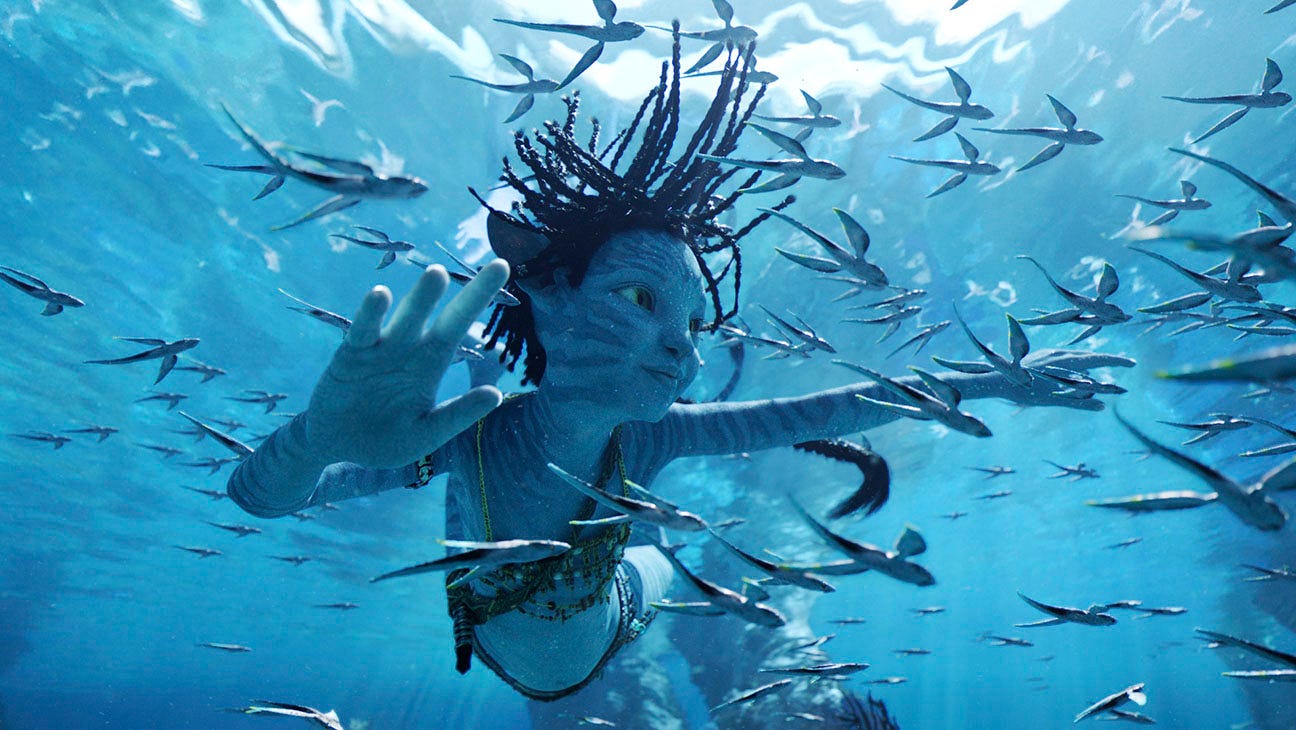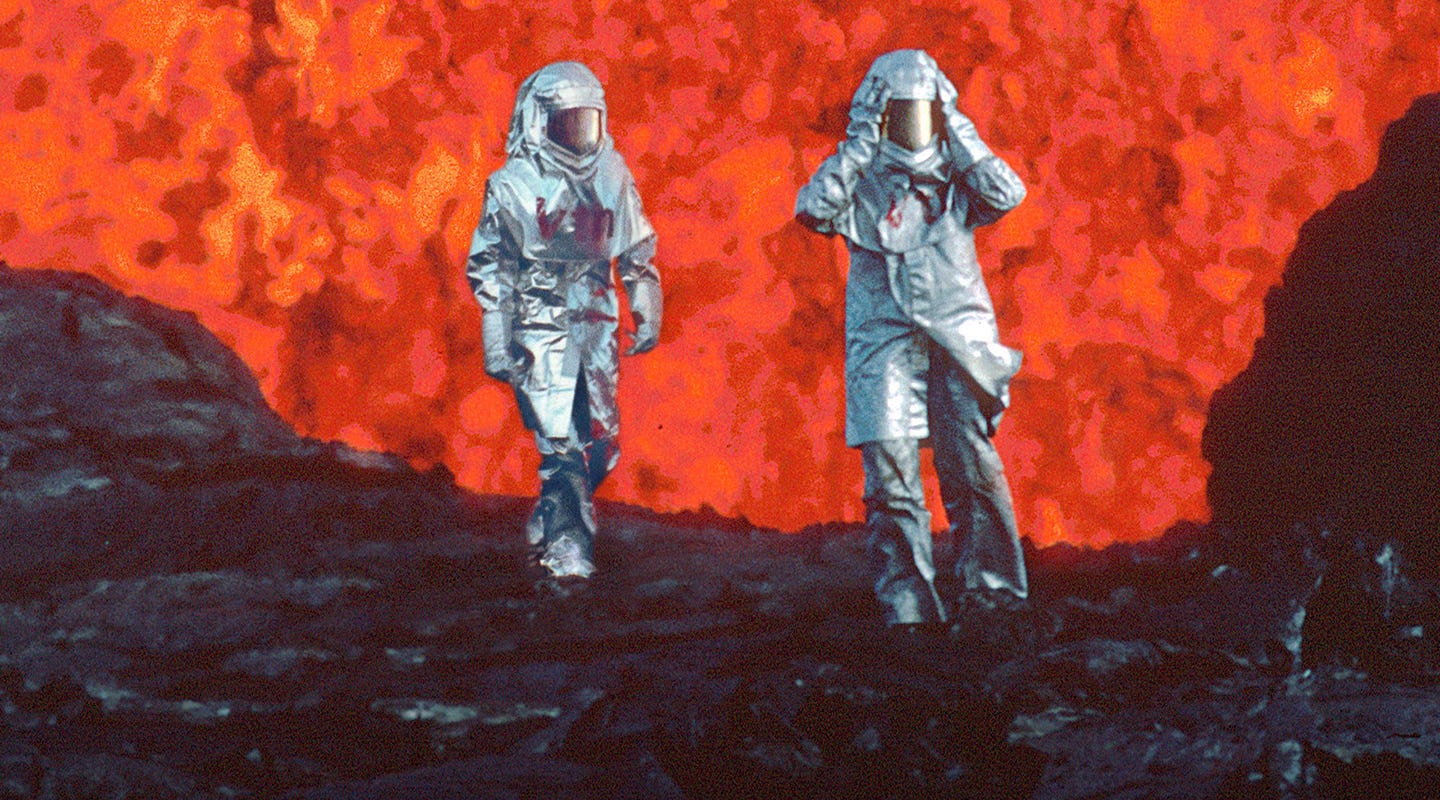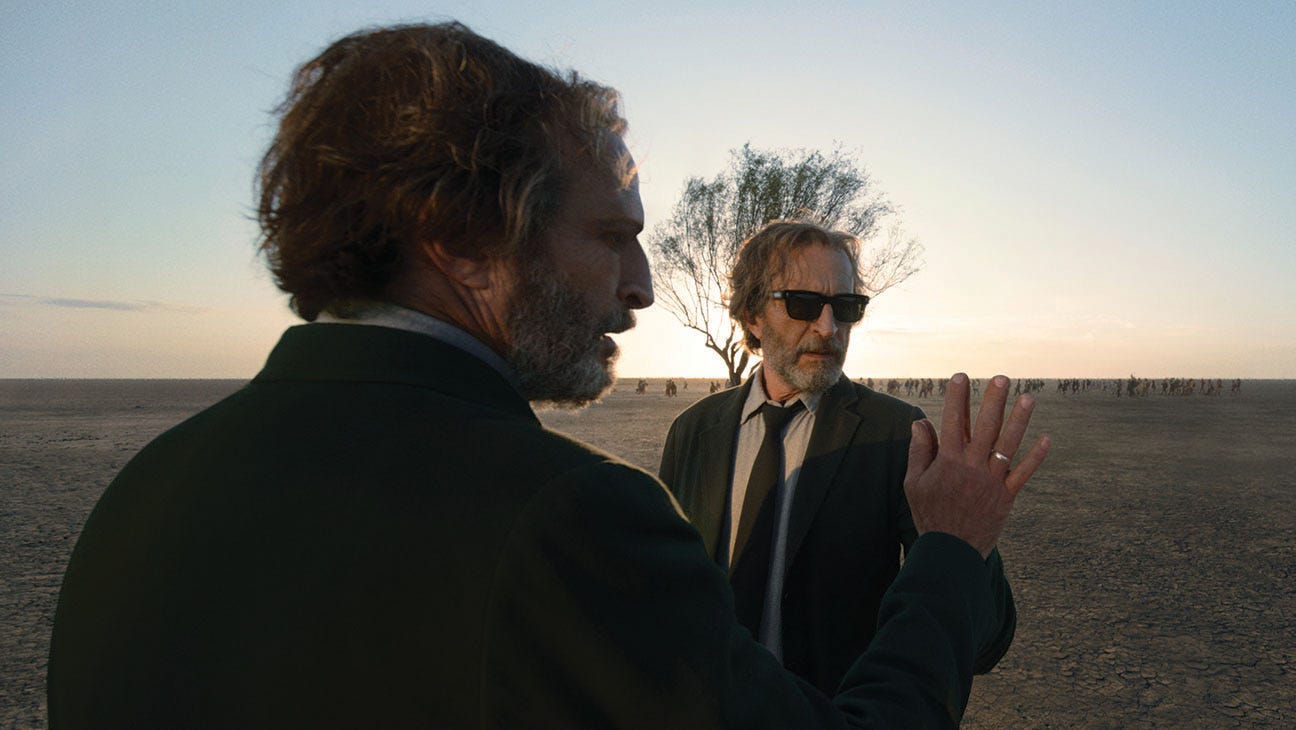2022 Film Roundup, Part 2, Weekly Reel #44
Decision to Leave, Avatar: The Way of Water, Fire of Love, Bardo - False Chronicle of a Handful of Truths, and The Menu
News of the Week: There’ll be one more post on the roundup of films from last year. As stated before, I won’t be creating a top ten of the year post (but I will post a list on my Letterboxd). Besides, David Ehrlich created a video countdown of the top twenty-five films of the year, which can’t be topped.
I will be writing a review on the State of Film in 2022 from an industry and American standpoint, outlining the many faults and improvements that’s affected cinema at large. Stay tuned, subscribe, and share with your friends! Love you.
Watch Now
Decision to Leave (2022, Park Chan-wook, South Korea) is this year’s honorary Korean drama that splashes in American critical circles. There was Parasite in 2019, then Minari the following year as an American-Korean hybrid, 2021 was Squid Game, and now its Park Chan-wook’s Decision to Leave. Known for his thrillers of love and violence in films such as Oldboy and The Handmaiden, Chan-wook crafts one of the more subtle and brilliant romantic films around a murder investigation. Detective Jang Hae-jun (Park Hae-il), a detective with insomnia from unsolved cases and a reverse sexless marriage (a postmodern marriage where they have sex once a week, regardless of their feelings for one another), and his partner find an immigration lawyer and amateur climber dead at the base of his favorite rock formation.
They talk with his young Chinese wife, Song Seo-rae (Tang Wei), who immediately gives off noticeably remorseless vibes as she struggles to fully convey herself in Korean. They find a fresh scratch on her hand, bruises on her legs and torso, and a tattoo of her late husband’s initials in the style of how he brands his other belongings. Hae-jun spends all evening watching Seo-rae in her apartment, which grows into a Hitchcockian obsession where she’s just as much into it. She turns out to have a motivating past for being in Korea: she killed her mother in China via fentanyl because of her chronically ill condition and had a Korean grandfather who was an independence fighter in Manchuria. As Chan-wook reveals more information, including Seo-rae’s supposedly rock-solid (pun fully intended) alibi, the fixation between follower and followed, victim and suspect, police and perp hardens. They eventually find an out for Seo-rae by finding a note from her late husband to a colleague that the detectives could plausibly interpret as a suicide note. But you don’t even need to have seen the film at this point to know that something is amiss.
A perennial festival winner (who has flown under the Academy radar—not a terrible thing), Park Chan-wook took home the award for Best Director at Cannes. The direction of Decision to Leave would only be possible from a filmmaker at the top of their game, one on par with the best auteurs in the industry. He delivers the story’s drama with such ease that one feels seduced by the finespun intrigues of the investigation and complicit with whatever crimes may or may not be committed. Hitchcock is the easy comparison to pin, which makes sense, but Chan-wook goes beyond him in his use of the mountain versus sea metaphor—neatly described in detail by Karsten; the mountain is fixed, stable, upright, while the sea is ever-changing, chaotic, expansive—to describe their relationship. The poetic resonance far exceeds that of Alfred H., who was merely (in slightly his own words) crafting thrilling bits for a travelogue. Chan-wook doesn’t let you off so easily, whether you’re mountain or sea, and how much you think you’re interested in the other more than your own, no matter how infatuated you become. There may even be consequences to your delusion.
Decision to Leave will certainly make the rounds come Oscar season, where it can follow in the Drive My Car footsteps of foreign film, writing, directing, and picture. It might even be re-released theatrically for a brief time because of that. Otherwise, residents of USA, Canada, UK, Ireland, India, and Turkey can stream it on Mubi. For everyone else, idk.
Save for Later
Avatar: The Way of Water (2022, James Cameron, USA/UK) isn’t bad. The end. Cameron does such a fantastic job pounding you into suspending disbelief by the end of hour one that when they drop the mic on the elixir of life, it passes without a second glance. The film does what it’s trying to do, and that’s good enough for American filmmakers today.
The IMAX 3D looked good, the HFR was serviceable (besides from the cartoon explosions), and the water stuff was pretty good. But: the acting is close to laughable, the dialogue couldn’t sound more robotic and poorly written, the story has enough plot holes to sink dozens of Titanics, Kiri’s backstory is distractingly ambiguous (born from a human woman’s avatar but with no father?—is she femme Jesus?) and she can somehow hold her breath underwater naturally and use underwater plants and creatures as her psychic minions, no character has an arc (they could have with Colonel Miles quite easily), the Na’vi-English accent is all over the map, how do the Metkayina know English?, why is an extra finger the only thing that differentiates a Na’vi-human hybrid?, the infatuation between Lo'ak and Reya was half-assed (why include that at all without a payoff?); but I do like how the Metkayina learned how to hold their breath for a long time rather than sprouting gills.
There are a million head-scratchers in this film, but it’s better than the first and mostly enjoyable, nonetheless. Best viewed on a plane during a trans-oceanic flight, but if that’s not available, then it’ll be playing in theaters.
Fire of Love (2022, Sara Dosa, USA/Canada) is a cutesy documentary about French volcanologist couple, Katia and Maurice Krafft, who advanced the science and socio-political cause of volcanoes until Mount Unzen erupted and a pyroclastic flow traveling over 100 km/h down the volcano blasted them with gases and tephra, which reaches temperatures up to 1,800 degrees Fahrenheit. Sara Dosa, a documentary filmmaker who creates stories about nature through nature, crafted a succinct, non-melodramatic and volcano-focused meditation from the mountain of footage the Krafft’s left behind. The result is quite minimal, allowing the volcano and Krafft’s reactions to them to tell the story. As in Werner Herzog’s Into the Inferno, who also released a documentary on the Kraffts this year, volcanoes create a mesmerizing daze of awe where the physical realm reaches into its historic core and creates myth.
Meeting at the University of Strasbourg, the two found their mutual attraction to volcanoes to be mutually beneficial for their future, so they got married and went off to study hundreds of volcanoes. He was a geologist; she was a geochemist. He recorded with film cameras; she shot still images. He had no limits to his dangerous plans; she would walk carefully behind him. A ride or die couple that unfortunately resulted, prematurely, in the latter. The doc works as a metaphor for a functional marriage: a couple, despite the dangers lurking up every ridge, remain committed to the end.
They became eco-famous through their early emphasis on volcano education using films, stills, books, and interviews to advance the public’s knowledge on these deadly, underexplored wonders. Benefactors and/or public funding provided enough resources to allow them to go to the latest eruption to capture intel in real time. Although they were volcanologists, they were also artists in their packaging and presentation of volcanoes. Sara Dosa may have directed the documentary, but the Kraffts provided the source material, the footage, the story arc, and the fiery muses.
Fire of Love is streaming on Disney +.
Pass
Bardo, False Chronicle of a Handful of Truths (2022, Alejandro G. Iñárritu, Mexico) is a film with too many imitations and naval-gazing from a director already on the critical back-leg. The film is trying to say everything through saying nothing, disguised as a kind of self-flagellating autobiography. The plot is simple, a Mexican journalist turned documentary filmmaker is feeling guilty about staying in the USA for too long, where he enjoys critical reception for his work but is displacing the identity of himself and his family. Iñárritu takes it upon himself to speak about this guilt quite literally.
Is this film necessary? Of course. With the trend of big filmmakers making their memoirs, Iñárritu pulled a “hold my camera” moment. He’s always straddled the line between pretentiousness and filmic revelation. For many, he went over the top with his misery porn (Babel and Biutiful), while for others, his film technique gimmicks (Birdman and The Revenant) were artistically unnecessary for the story he's telling. I’ve enjoyed all his films, defending and admiring his unique approach to filmmaking. But Bardo is the Tenet of his filmography. More than his previous films, Iñárritu is nakedly going for European film festival acclaim, while simultaneously whipping himself on the back for doing so, in its ambitious shocks—the baby inserted back into the mother, twice—and awes—those kinds of wide angles and long shots that do more to bring attention to the shot than the content.
The worst is Iñárritu imitating others while offering nothing himself. If you want to steal from Fellini, great, add to it. But don’t make something that screams “amateur film school student that just watched 8½ and now wants to film their faux Freudian, faux auteur inclinations.” We get it, you’re concerned about losing touch with your homeland and uneasy with the way in which Americans are using your status for their own ideological ends. That’s a great premise. At least disguise that fact before calling action with 65mm cameras. (Who knows, I might end up reversing my opinion à la Babylon after a second viewing.)
Bardo is streaming on Netflix.
The Menu (2022, Mark Mylod, USA) was a bill of stolen class goods sold as an extension producers Adam McKay and Will Ferrell, as well as Succession’s writers Mark Mylod and Will Tracy. Although it does exhibit similar, subtle humorous tendencies, it has none of the show’s satiric dramedy that made it popular as an anti-corporatist and anti-elitist program. The Menu takes its cues more from the cringe comedy of Late Night programs and Don’t Look Up, where absurdity, poor writing, and strawman assault trumps legitimate critiques of the media or class. The main characters have close to zero motivation or interesting backgrounds while the supporting characters are stereotypical cookie cutouts that the writers didn’t even bother to add frosting and sprinkles onto.
Ralph Fiennes does his best, bless his heart. Nicholas Hoult plays his small part hilariously but is devoid of an arc, along with every other character. Anya Taylor-Joy can basically do anything…except make The Menu more interesting than it is.
The Menu is streaming on HBO Max.
Thank you once again for checking out my Substack. Hit the like button and use the share button to share this across social media. And don’t forget to subscribe if you haven’t already done so.








